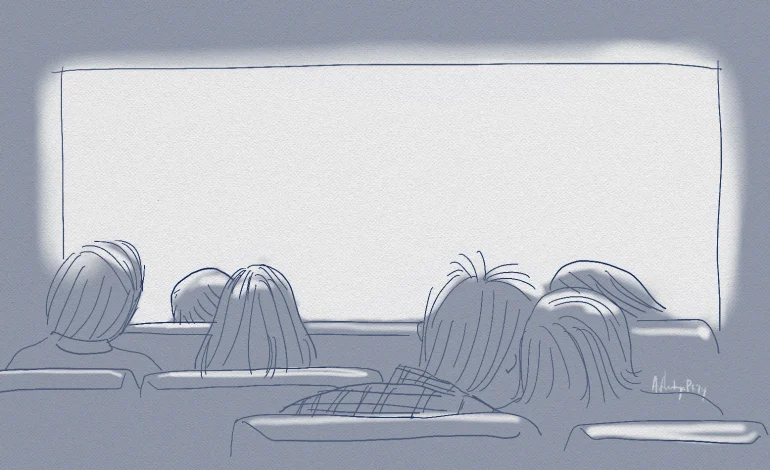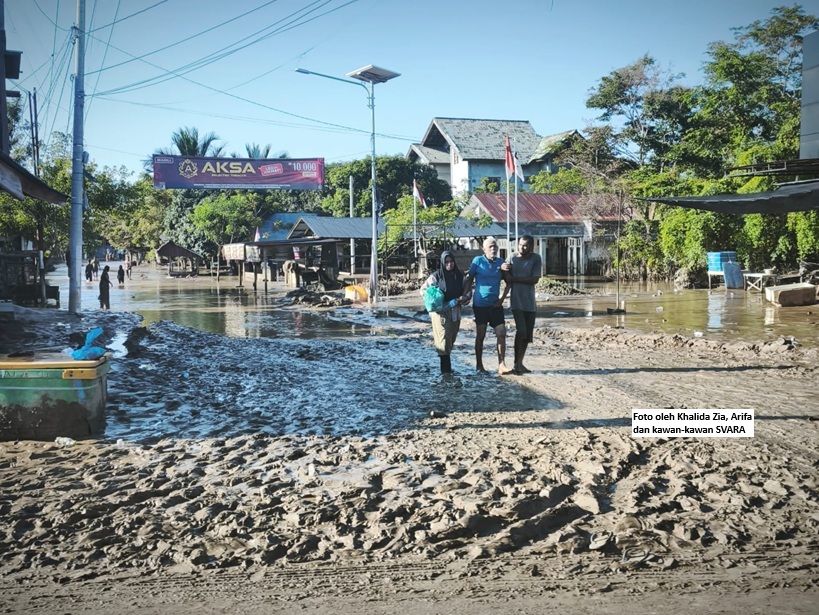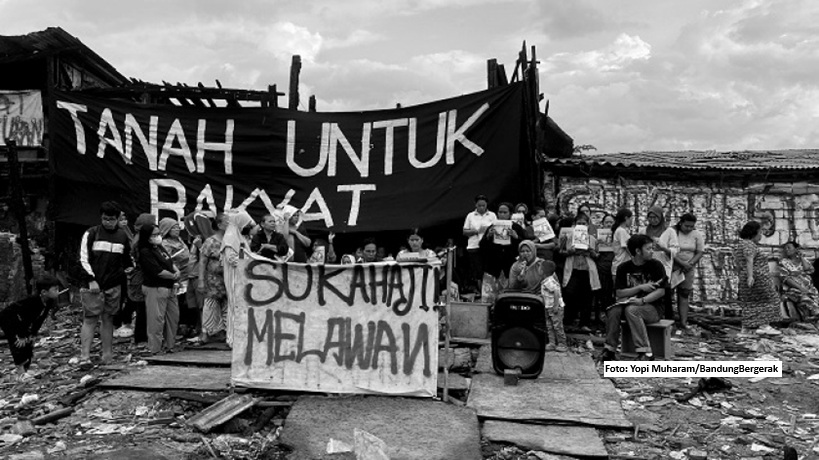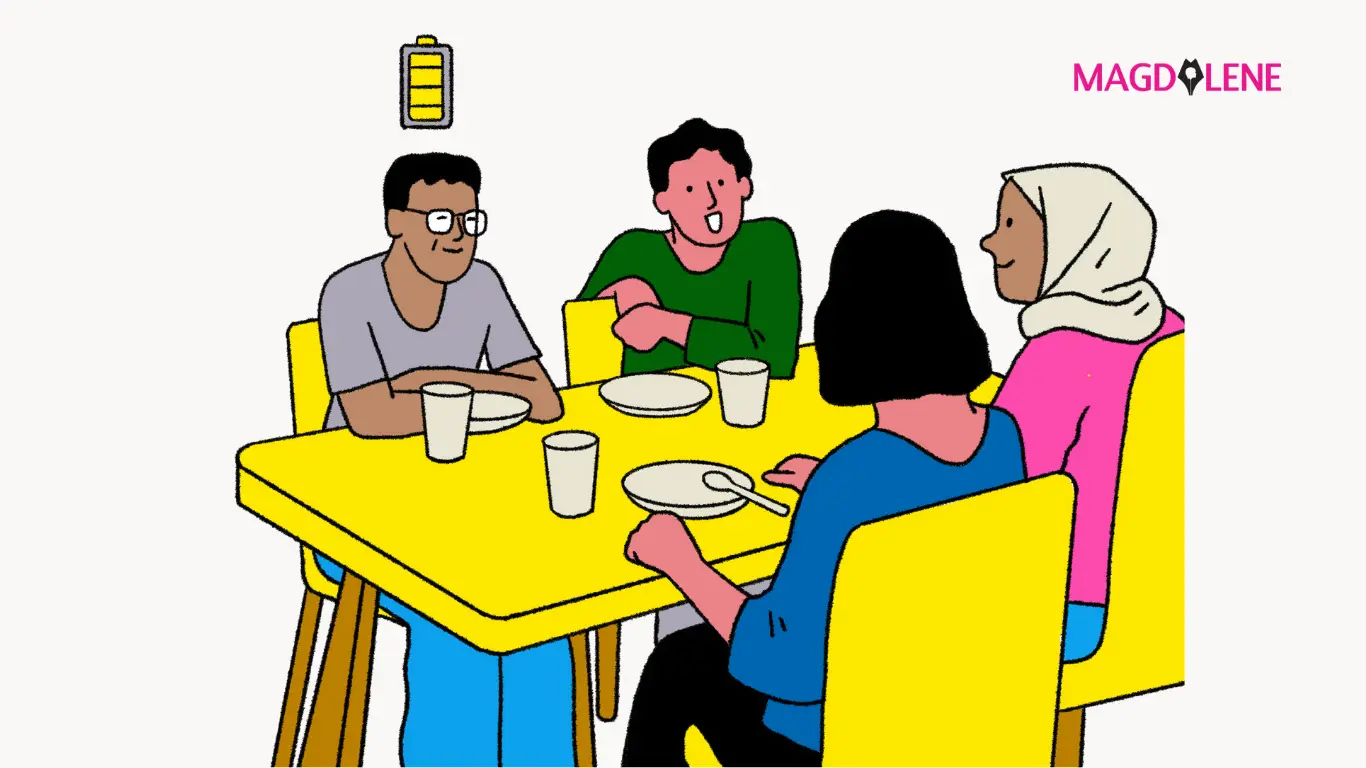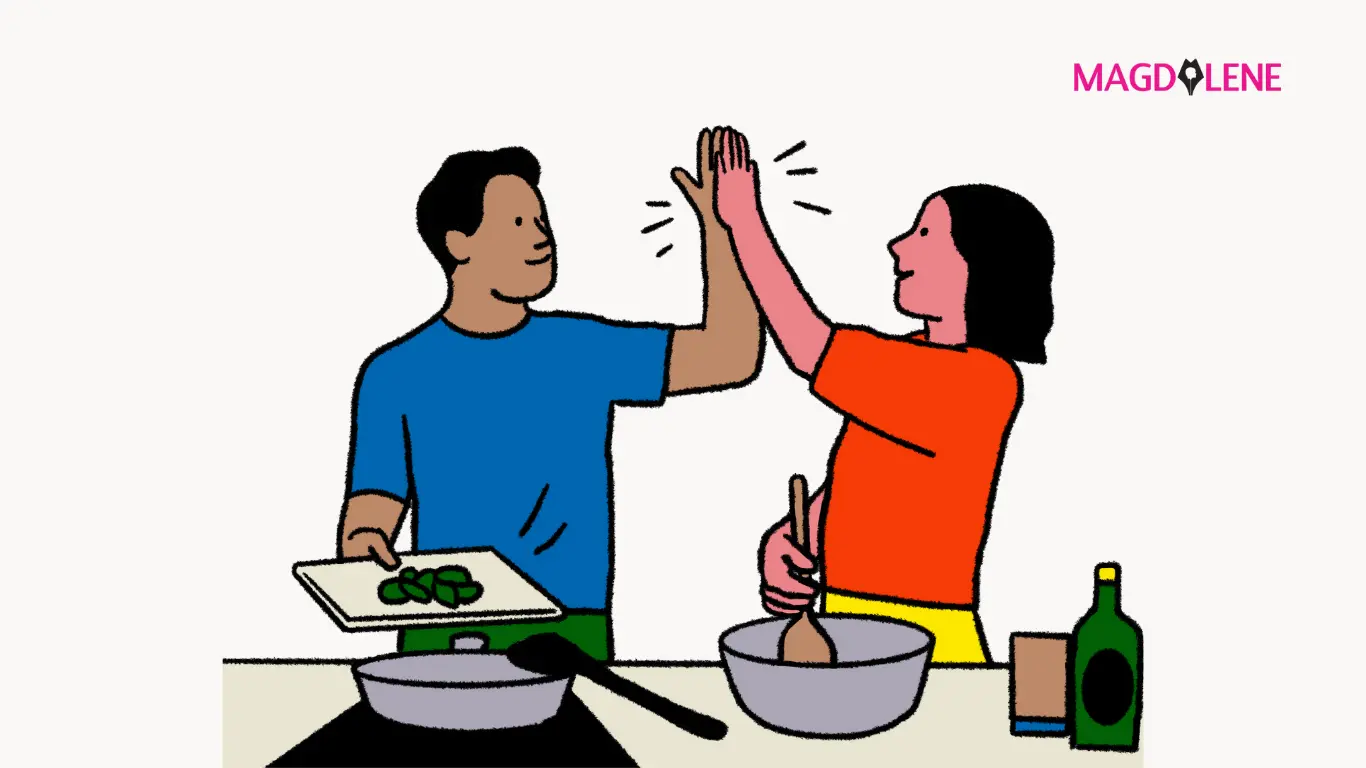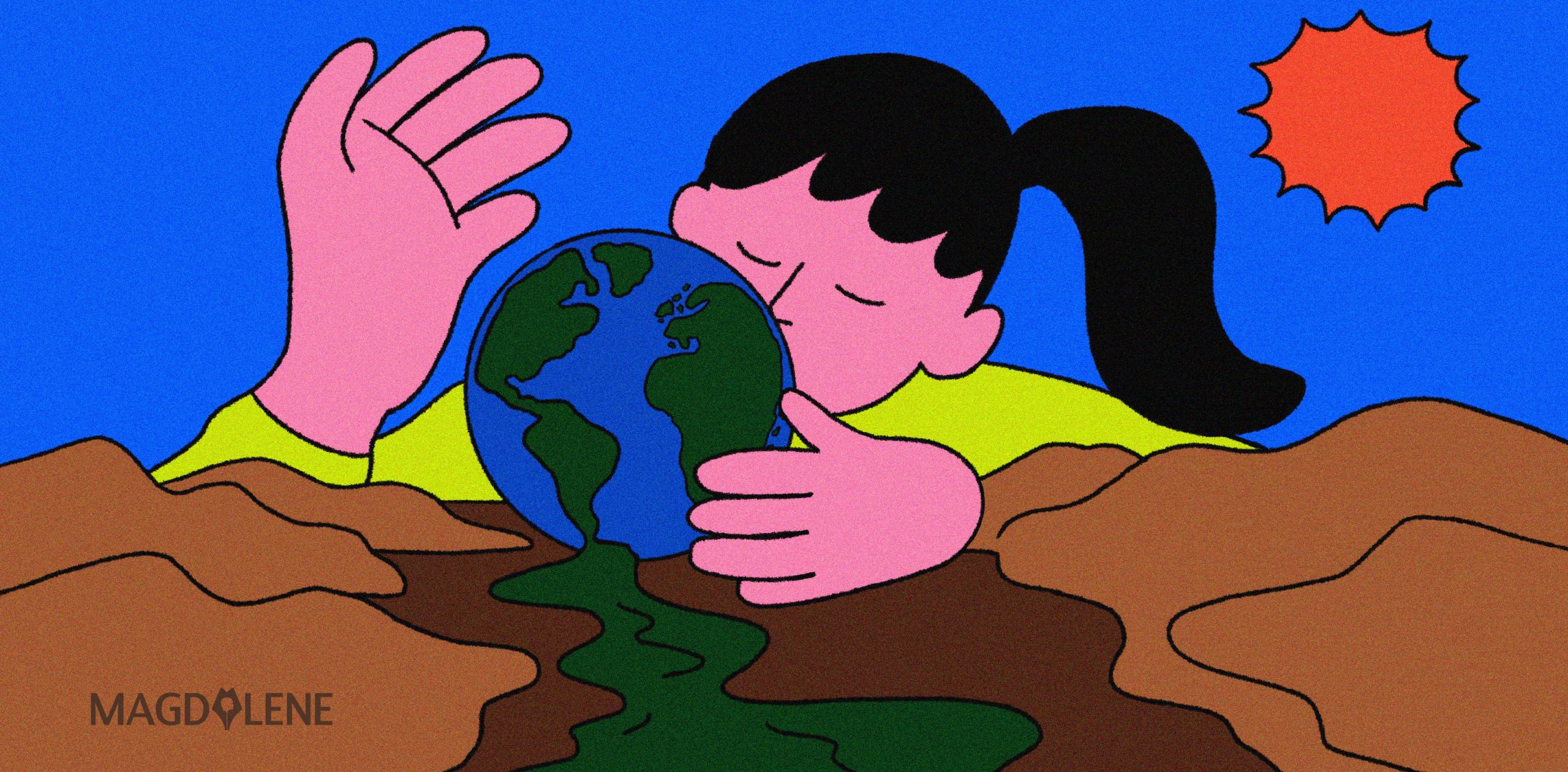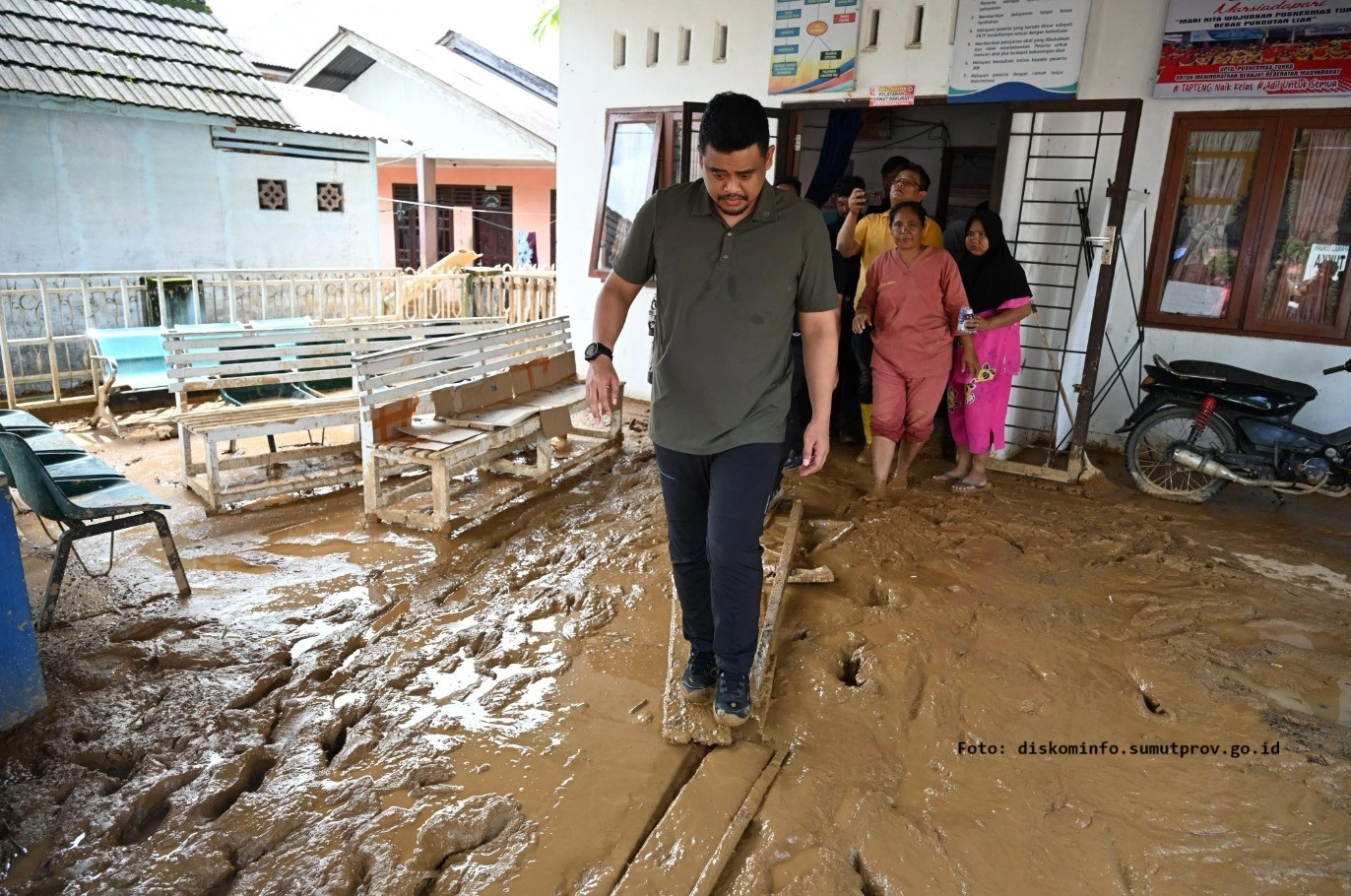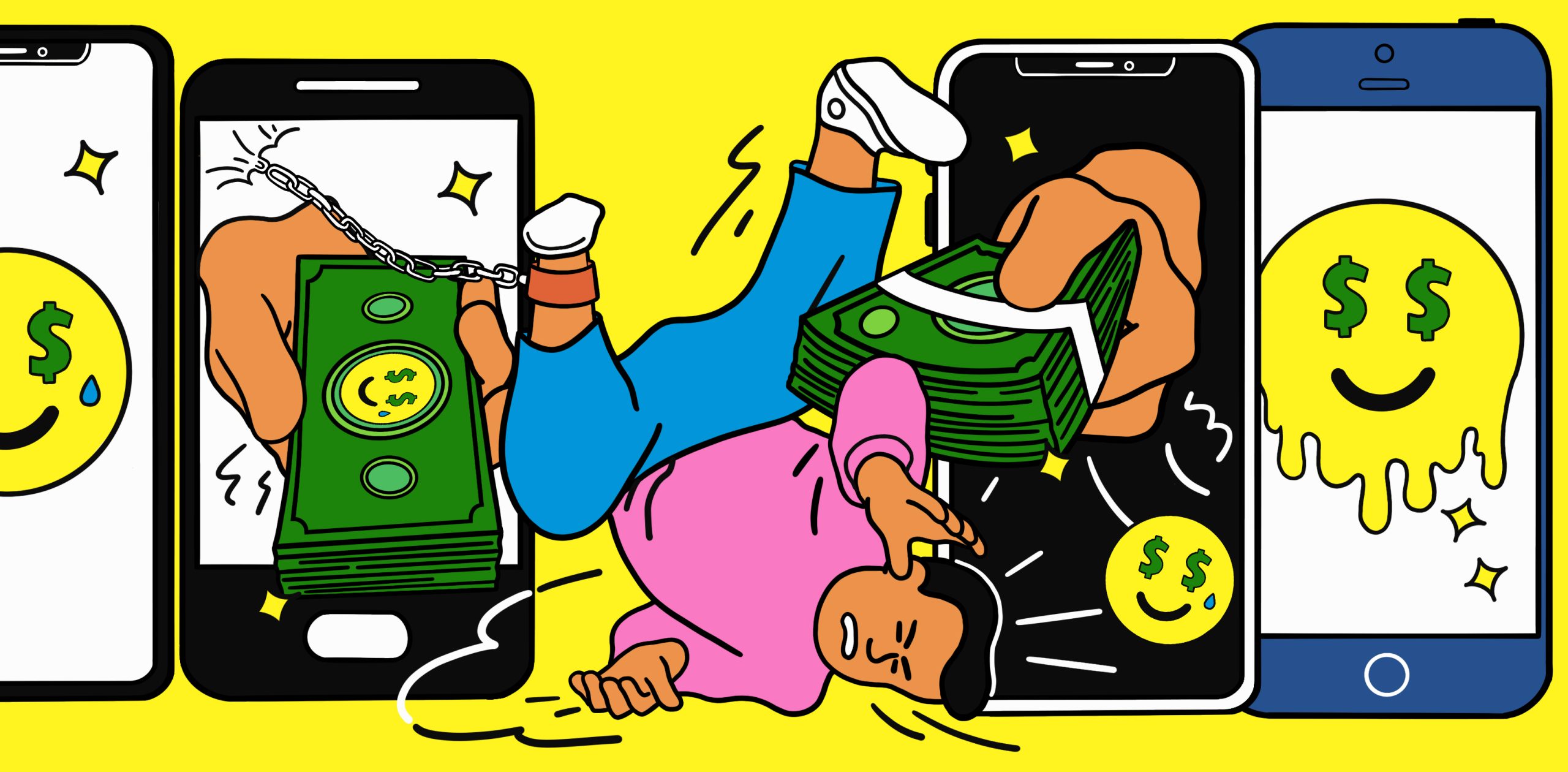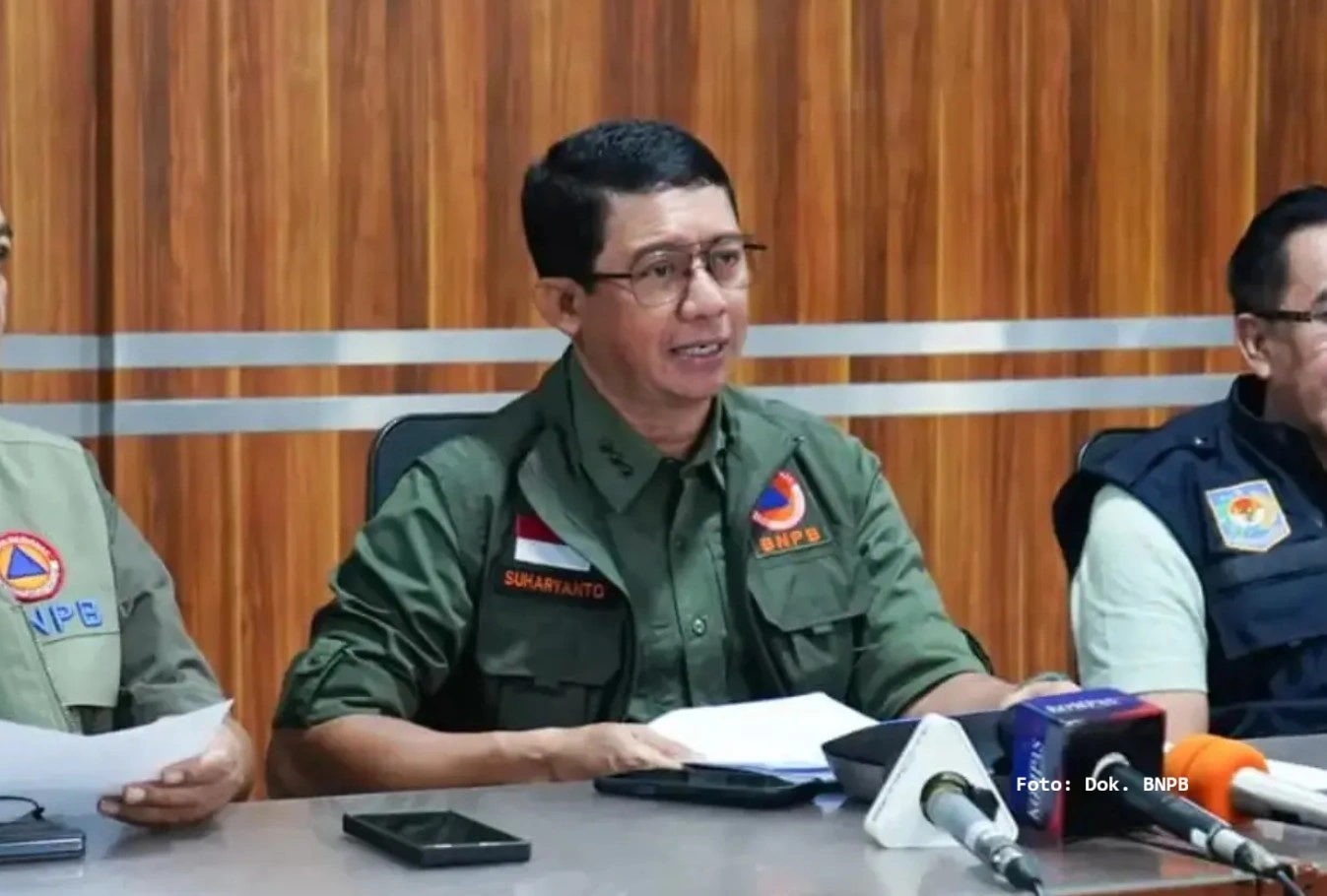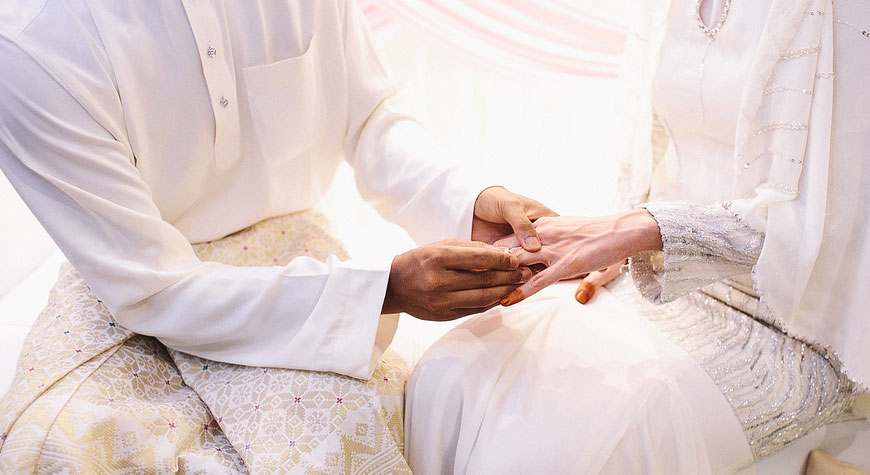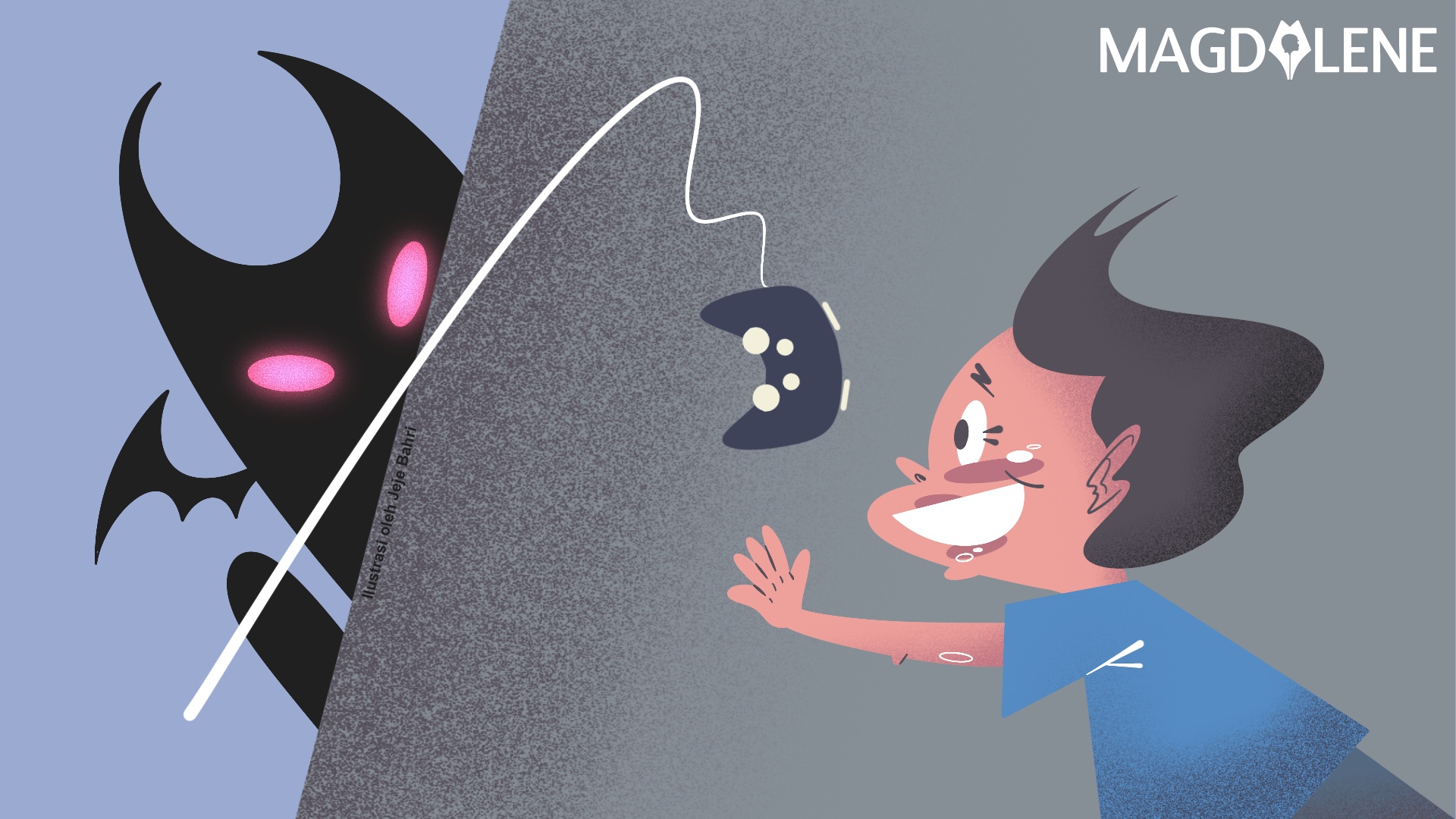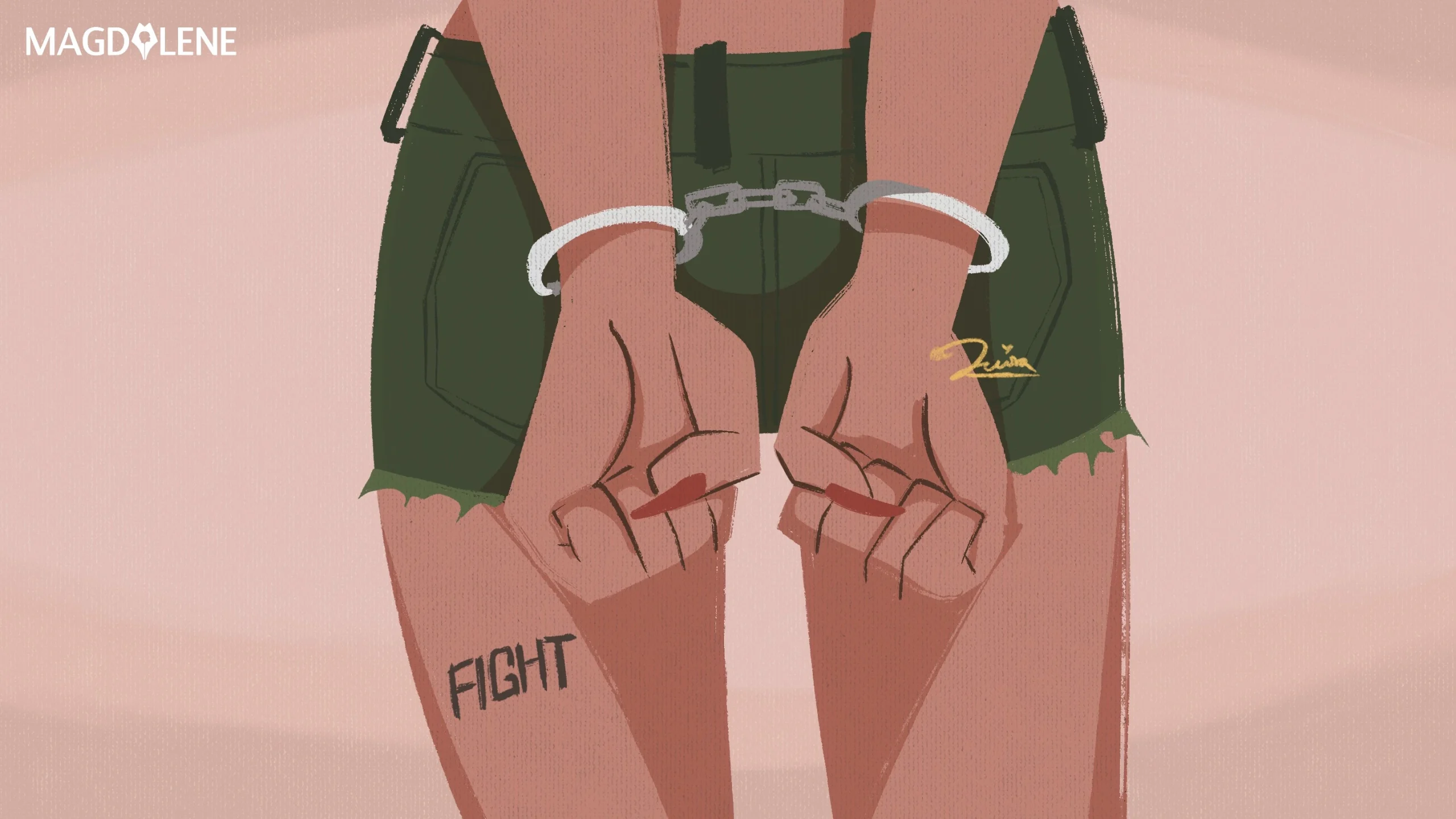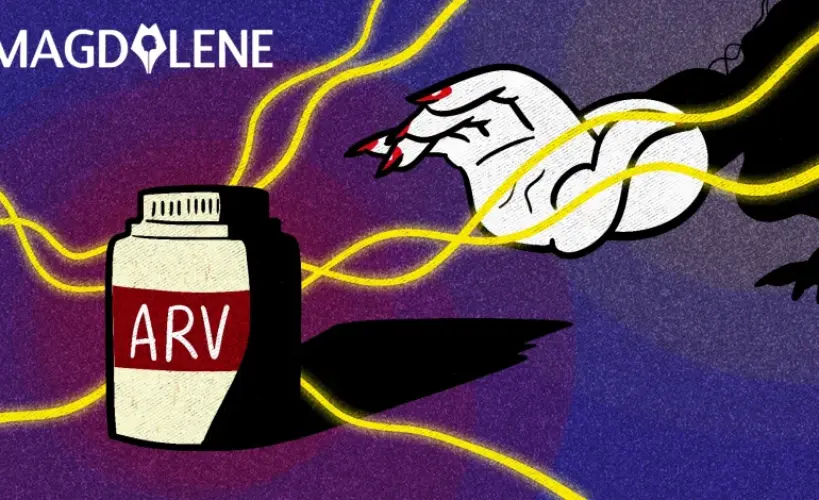Losing It and Bouncing Back from Panic Attacks
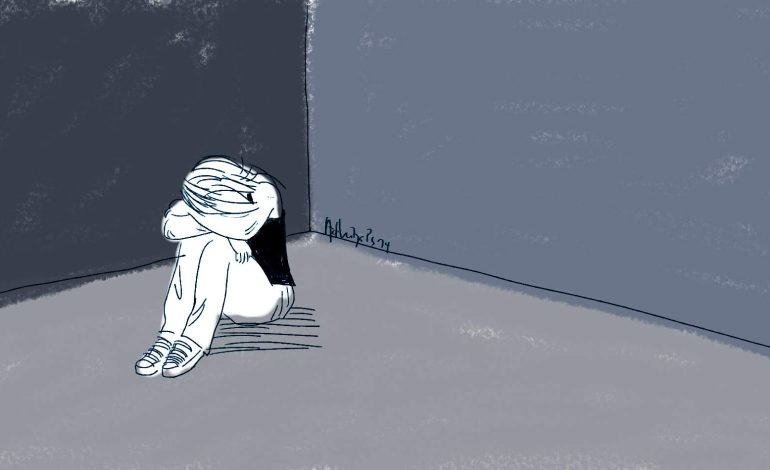
Early this year I had just checked into a hotel room in a Java town after a couple of days traveling for a writing project, when my internal world suddenly imploded and everything about life turned menacing and dreary.
It was completely unforeseen – one minute I was feeling self-satisfied and excited about my project, the next I was on the verge of a major meltdown.
It was all possibly triggered by a combination of a text message from a friend about the death of her sister’s mother in law (whom I just saw for the first time the week before, looking vacant and helpless in an advanced state of Alzheimer); the TV news flashing Malaysia Air Flight 370’s disappearance; and the strong instant coffee I drank on a roadside stall three hours earlier on the way there.
In bed I noticed my heart beginning to race and my breath becoming heavy. I switched off the TV and sat up straight. My eyes were closed as I tried my usual mindfulness meditation practice. A few minutes later I opened my eyes in horror, gasping for air and feeling like the walls were crushing in on me.
It seemed like there wasn’t enough air to breathe (and I don’t have asthma), so I ran out of my room to find some fresh air. My heart was beating so hard and my skin felt hot. I felt restricted by my clothes and had the impulse to take them off right there and then. This sent me to an even bigger panic, as I thought I must have been going crazy, like those mentally ill people who stray on the street in various states of undress.
It was nearly 11 p.m. and the pool area on the same floor was dark and empty. I tried some deep breathing technique from yoga while looking up at the sky. I knew what was happening: I was having a panic attack.
I’d never had this problem before. It is usually a mix of low-level existential angst and melancholia that haunts me periodically. And even the mild anxiety attacks I’d experienced – like the one in a train in India a few years back – went away quickly, nothing that was not relieved by a little walk outside and a therapeutic writing on my notebook.
Finally, I grabbed my notepad and pen, sat on one of the tables in the hotel’s café that was already closed, and began to write until my mind eventually settled.
Waves of Distress
Panic disorder is one of several types of anxiety disorders, which in the United States affects at least 20 percent of grownups, according to the US National Institute of Mental Health. Back at the hotel, I intuitively knew how to handle it, but the magnitude was so powerful that I quickly lost my grip.
The next morning at the airport the symptoms reemerged and it filled me with fears that I wouldn’t be able to breathe during the flight, while there would be no doctors on board to help me. After a few deep breaths, however, I was able to calm down.
In Jakarta, stuck in traffic on the way home from the airport, the now-familiar sensations of panic resurfaced again. It felt as though there was no oxygen inside the air-conditioned cab. I stuck my head out of the rolled down window to gulp the polluted air. I had to stop myself from stepping out of the stifling car and running away from the traffic jam.
These brief attacks came and went a few times throughout the day, leaving me battered and vulnerable. I knew it was all in my head, so I did not want to see a regular doctor, despite the strong physical symptoms. By the end of the day, I had sunk into a dejected state, where everything, every piece of information or literature I read, every song, every news report or movie on TV only amplified the bleak spirit that had taken a grip on me. The sense of doom covered everything from the personal (I’m going to grow old sad and alone, possibly in a mental hospital) to the more global (humanity is self-destructing and people are sad slaves to the misguided ideas of who they are).
It was different than my first bout of depression a few months after college graduation, when I suddenly lost the ability to feel joy or even to get out of bed in the morning. I sought solace in writing at the time, and there were volumes of short stories and unfinished books to show.
This latest wave of emotional crisis made me fearful of everything. I felt suffocated inside my apartment, but was too scared to go outside lest I lost control of myself. I’ve always prided myself in being fearless and in my ability to remain composed (detached even) in the face of crises, but the panic attack had disempowered me.
I kept it from everyone for a couple of days, during which I had no direct encounters with people anyway (my husband was still away), until a close friend called. After trying to hide it, I finally told him that I needed help. In a concerned voice, he told me he had a friend who had a similar experience but had fully recovered.
“He’s like you, Dev, western educated, driven, perfectionist, and then one day he snapped and couldn’t leave his room for weeks. If the treatment worked for him, it might work for you too. Let me get his doctor’s number.”
He got back to me with the number and a message from his friend that it would get better and that I could call him anytime I needed. I was touched knowing I was not alone.
I went to see the psychiatrist the next day. He told me I needed medication as I might have some chemical imbalance. After that other forms of therapies might be more effective.
“Will I be addicted, Doc?” I asked him.
“Let’s hope not,” he said.
I got 10 days worth of capsules containing a blend of anti-anxiety, anti-depressant and sedative that I was supposed to take once a day at night. It was also supposed to help me sleep better, so I took one that night.
Over Medicated
The next morning I woke up feeling fuzzy. The negative voice in my head had gone. In its place, however, was a leaden brain filled with white noise that rendered any effort to think an arduous task.
I dragged myself to the couch in the living room, where I would be stationed for the next couple of hours, unable to summon the energy to have breakfast, nor to dress up and get ready for my lunch meeting. When I eventually did get to the meeting, I was not my usual self. My thoughts felt airy and evanescent, like a water bubble that bursts the second it catches your attention.
I gave it another go to see whether my body would get used to it, but the next day I was still a zombie. This could not happen. I was in the middle of multiple projects, and about to start on a big work the next week that required a clear, sharp and alert head. I called my doctor and he told me to halve the dosage.
For the next five days I took the pills at half dose and practiced some gentle therapeutic yoga for anxiety. At the same time I was reading a lot of literature about panic and anxiety disorders. The meds seemed to work; I could function better and the symptoms decreased, even nearly stopped. But I was still seized with worries that it would come back. After Day-5 I stopped, however, because of a working trip the next day that started at 4 a.m. in the morning (the meds made it hard to wake up early). But I made a mental note to find a therapist soon.
And so the next week I met with a cognitive behavioral therapist, whom I found on the Internet.
“You are not going crazy,” she said after I told her my story in the living room of an apartment she used for practice.
“Craziness is a mental breakdown in which a person loses his grasp of reality.”
What was happening to me was a physiological response to stress. Our body’s fight-or-flight response has enabled our species to survive hundreds of thousands of years of physical and mental stresses. When there is a threat, we either fight or run away or freeze, but upon sensing the threat, our body goes into the same mechanics as the panic mode. The heart and lungs accelerate, the skin flushes, the blood vessels for muscles dilate as it prepares to run or fight, and the digestion and reproductive system slows down or stops.
In the case of a panic attack, the body mistakenly senses that it is under threat, like an overly active car alarm.
“No one dies from a panic attack,” she said.
“But it can lead to avoidance behavior, especially to things that you fear might trigger the panic attack again.” I mentally noted that I had begun to question my ability to travel solo, which I love to do, post-panic attack.
Medication helps to nip the symptoms in the bud, she said, but in the long run it might cause an addiction and lose effectiveness.
After about an hour of consultation, I left feeling much better, although my actual therapy wasn’t going to begin until the next week.
But that turned out to be the last time I saw her, or any other therapist. In the end, work was so consuming that I couldn’t commit myself to making it to a regular treatment.
I had improved so much since then, though, thanks to a better awareness. The few times I sensed a panic attack looming (short breath, heart palpitations), I did a breathing technique and rested in the awareness of that breath.
So here are the three things that my therapist suggested to me that might help if you’ve ever gone through the same problem:
- Develop a mindfulness practice. I have been a regular meditator for the last few years, but I had fallen off the wagon at the time of my panic attack. She showed me an app on her iPhone called Breathe2Relax, which guides you through a regulated breathing. You can customize your own pattern, music and animation too. I have since also found an easy guided meditation app called Headspace, which is very handy if you’re not accustomed to mindfulness practice. There are also many podcasts on guided meditation sessions on iTunes and the Internet.
- Take pleasure in the lighter side of life and try not to overwork and overstress yourself. Juggling work had drained me and often made me skip my daily exercise, which is an important component for my equilibrium. Pay social calls on friends, enjoy good food or films, and if you’re a cycling nut like me, go for a ride more often. During this period, I also stayed away from movies, books and music that were too depressing, although I usually love them.
- Get a professional treatment. There are at least two types of psychotherapy known to treat emotional problems like anxiety disorder. The more established one is the Cognitive Behavioral Therapy (CBT), which helps patients understand the thoughts and feelings that influence their behaviors. The latest technique that has been proven to be effective in an even shorter time (and was proposed to me by my therapist) is the Eye Movement Desensitization and Reprocess or EMDR, which uses bilateral stimulation, eye movements and tactile stimulations to assist the mind-body connection.
I never got to do number three, as I have managed to live relatively free of panic attacks for the last six months. But knowing there is an option for me if someday the problem returns has been a true comfort.
Read about Devi’s dark childhood experience here and follow @dasmaran on Twitter.


